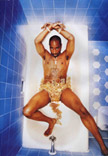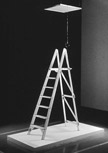 |
||||||
The Rhetorics of Popular Music
The discourses used to describe popular music have material consequences for how that music is produced, the forms it takes, how it is experienced, and its meanings. Focusing on pop, rock, and rap, then, this course considers ways of describing, assessing, and arguing with a range of literature on the topic of popular music.
As a feature of the course, students look at particular musical cultures in order to understand how certain social interests and tastes are served by particular performers, songs, and performances. The course assumes that popular music provides not only entertainment, but serves as a site for the personal, social, and political experiences of youth. It also assumes that one way of understanding these experiences is to examine the language and images surrounding key terms and concepts employed in talking and writing about popular music.
Digital Rhetorics
What are we talking about when we talk about the internet? How does language structure our opinions of the internet and its relationship to culture?
The first part of the course surveys current discourse about the internet as it shapes and is shaped by a variety of competing forces. The second part of the course emphasizes writing or multi-media work based on the research interests of those taking the class. Starting at midterm, that is, the course will offer workshop-style support and guidance meant to help students prepare their work for conference presentations and publication.
The readings pay special attention to issues of and interdisciplinary arguments about governance, identity, and community. They also focus on digitally-inflected notions of narrative and interactivity. While we attend to the historical specificity of the internet, we will also reach back, as needed, to consider the critical reception of the telegraph, the telephone, radio, and so on.The readings for the course mix theoretical texts with print- and Web-cultural journalism and multimedia materials from fields such as sociology, computer science, art, film, and literature.
Uncreative Writing
Traditional notions of "creativity," "authorship," "the artist," and so on are increasingly complicated by contemporary practices such as file-sharing, sampling, and digital replication. This graduate seminar traces the rich history of forgery, frauds, hoaxes, avatars, and impersonations across writing and the arts; examines how Modernist notions of chance, procedure, repetition, and the aesthetics of boredom influence a variety of current writing and art practices; gives students experience employing strategies of appropriation, replication, plagiarism, piracy, sampling, and plundering as compositional methods for writing.
Students are asked to read and write each week. Some of the writing is critical; other writing is "uncreative." The Web, spam, file-sharing, chat rooms, etc. may be actively employed as objects of study and as sources for writing material. Readings, listenings, and viewings include: John Cage's Silence, John Oswald's Plunderphonics; Yoko Ono's work; Kant, Foucault, and Landow on "authorship," The Musem of Forgeries; The Handbook of Surrealist Games; art by Jeff Koons, Cindy Sherman and Joseph Kosuth; Reality TV; and materials developed out of the Oulipo, Fluxus, and Conceptual movements.
A special feature of the class this term: access to the "Collage as Cultural Practice" conference which will examine interventionist collage practices in all media, with an emphasis on the social, political and legal implications of this method of appropriation, and a interdisciplinary conference on copyright. Both conferences will be held on campus this spring.


